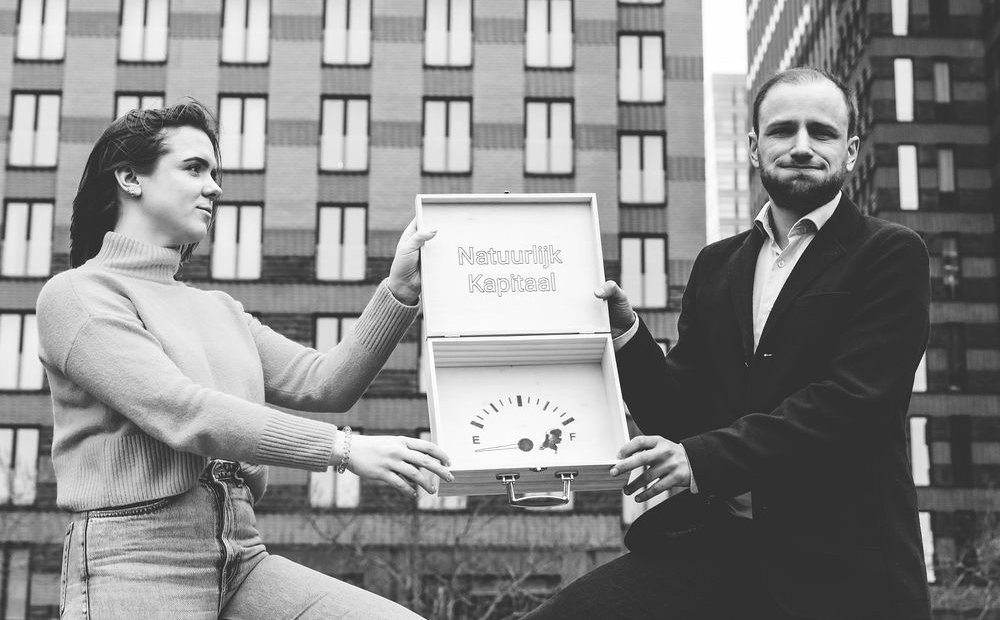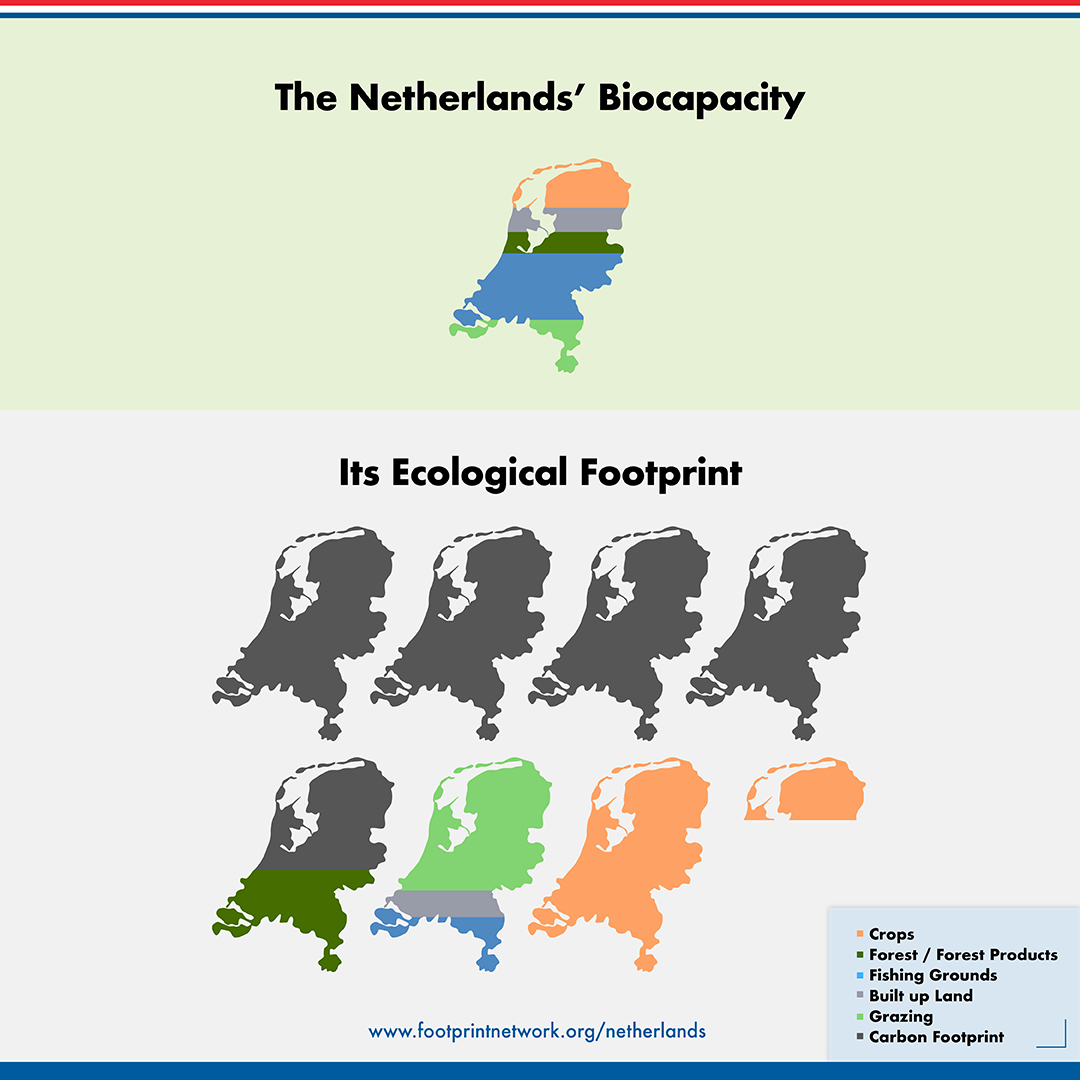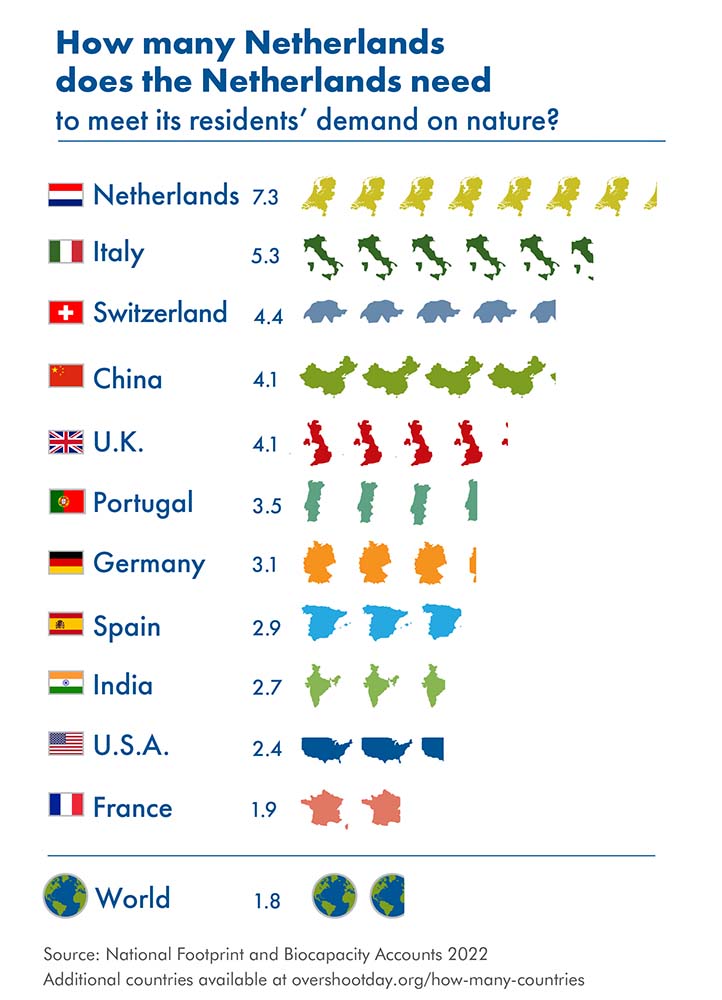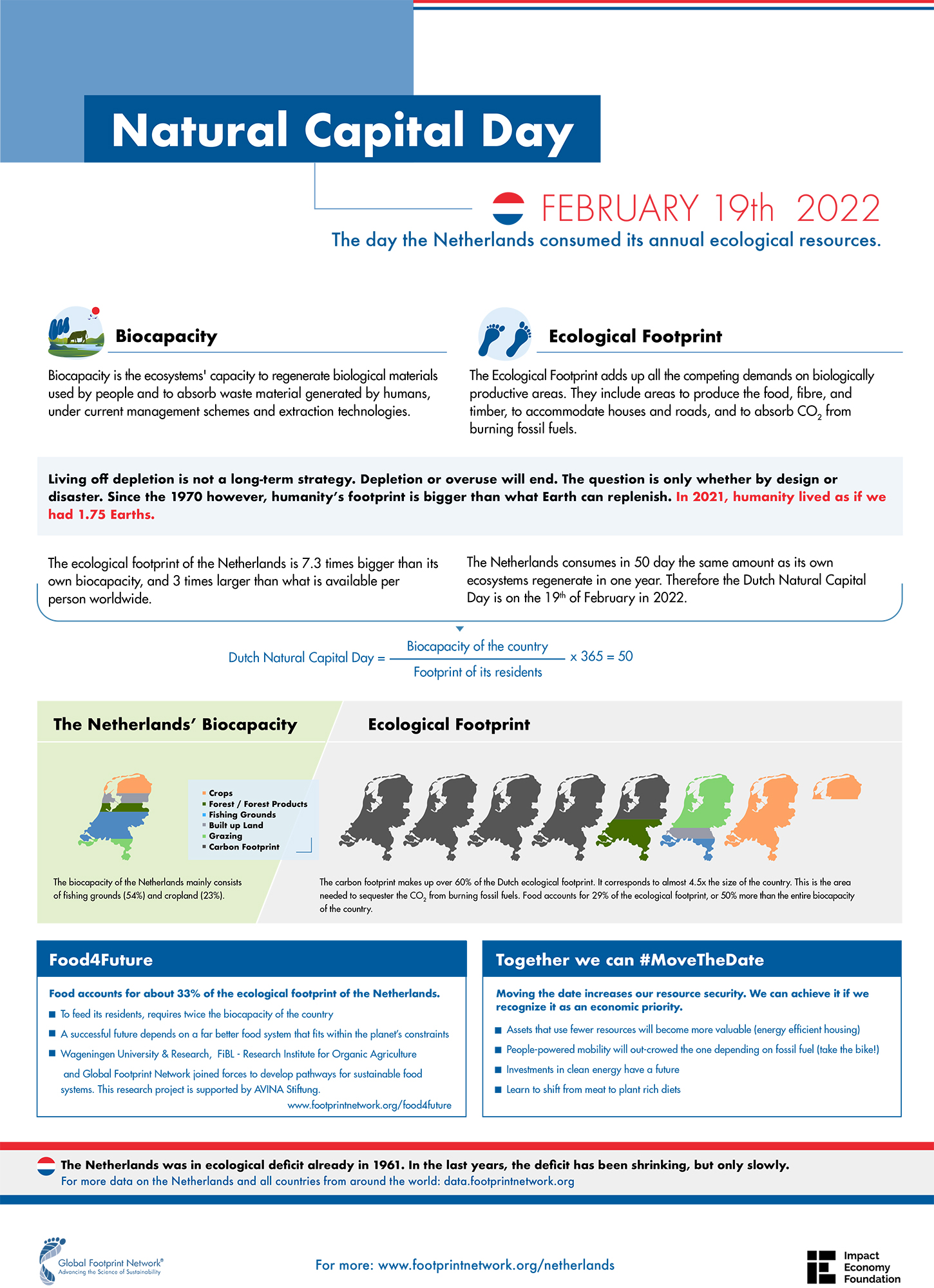Amsterdam — February 19, 2022 — Today is the Dutch Natural Capital Day. After only 50 days, the residents of the Netherlands have demanded more from nature than all the Dutch ecosystems can renew this entire year. To mark this day, Aniek Moonen, on behalf of younger and future generations, handed a briefcase with Natural Capital to the Minister of New Economy, Michel Scholte. The briefcase was empty.
The ecological footprint of the Netherlands is over seven times higher than its biocapacity, according to the 2022 edition of the National Footprint and Biocapacity Accounts from the Footprint Data Foundation in partnership with Global Footprint Network and York University, Toronto. Behind carbon-emissions, the food footprint is the second largest component of the Netherlands’ ecological footprint. It takes more than twice the entire biocapacity of the country to provide food for its inhabitants.
Food is particularly central, and tricky. A successful future depends on a far better food system that fits within the planet’s constraints. By combining deep food system knowledge with the power to engage key decision-makers, the Food4Future project will explore pathways towards food systems that fit within planetary constraints and can deliver in a predictable future of climate change and resource constraints.
In a world of global overshoot – occurring when humanity’s demand on nature exceeds the biosphere’s supply, or its regenerative capacity – using up our own natural capital budget so quickly is a growing economic risk for a country. “This is becoming a driving concern for the younger generation,” says Aniek Moonen, president of the Dutch Young Climate Movement. “Not only will they be saddled with the consequences of climate change, but the depletion of our natural resources may soon render their basic needs unattainable. Our consumption patterns must change radically if we want to leave something for our children and grandchildren.”
“Many solutions already exist, such as reducing waste, decreasing meat consumption and alternative protein sources, but such solutions must be combined to achieve a sustainable food system. Our circular food model indicates it is possible to provide healthy food while reducing the environmental impact”, said associate professor Hannah van Zanten who is leading the Circular Food Systems team at WUR, “but it will need a radical redesign of today’s food systems”.
“The permanent availability of healthy and nutritious food is something we have become accustomed to. We cannot imagine that our food system can break, although we did get a foretaste at the beginning of the pandemic with some empty shelves. If we do not restore the balance sustainably, we risk many more empty shelves and ultimately a collapse of the whole system. We must give nature the chance to recover, after every harvest.” says Marcel Beukeboom, permanent representative for the Netherlands at the Food and Agriculture Organisation.
“In a world that is demanding 75% more than the planet can renew, it is staggering how little attention this massive overshoot challenges is receiving. Yes, there is massive innovation in the Netherlands, from light efficiency to bicycle focused transportation and new ways of agriculture. Still, it pains me to see how exposed the Netherlands still are using over 7 times more than its own ecosystems can regenerate.” said Dr. Mathis Wackernagel, president and co-founder of Global Footprint Network.
For more details on the Netherlands’ ecological performance, visit the fact sheet.


 To view/download the infographic, choose file type:
To view/download the infographic, choose file type:
 To view/download the infographic, choose file type:
To view/download the infographic, choose file type: